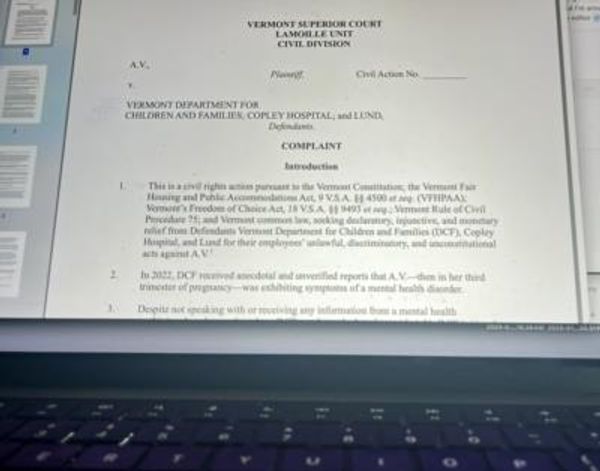
This is the fourth instalment in a new series, The Murdoch Century, examining the legacy of News Corp and Rupert Murdoch.
Since the Australian Broadcasting Commission was established more than 90 years ago, Australia’s commercial media incumbents have hated and tried to undermine it.
In the 1930s it was the powerful newspaper proprietors who sought to control the emerging mass medium of radio. Now it’s commercial TV and radio broadcasters, chiefly Nine and News Corp — who just happen to also be newspaper proprietors. The dominance of self-serving, oligopolistic incumbents is the permanent theme of media and media policy in Australia.
As the ABC’s Stan Correy outlined in 2017, the media incumbents, led by Keith Murdoch, wanted to ban the new ABC from providing an independent news service, and instead force it to simply read news from their newspapers, and pay for the privilege. And they didn’t want consumers being able to hear news on the ABC’s radio broadcasts until after they’d bought afternoon and evening papers.
It sounds ludicrous, but it’s little different from how the Keating government banned pay TV from buying sports rights, maintaining a free-to-air monopoly on major sports, or how the Howard government handed digital television spectrum not to new entrants but to the existing free-to-air broadcasters (a decision that rightly enraged News Ltd at the time).
The interests of media incumbents always trump the interests of competitors, and definitely trump the interests of consumers, who are left to take what they’re given by incumbents, and like it.
As Rupert Murdoch himself famously put it, “a monopoly is a terrible thing, until you get one”.
The ABC, as a competitor, has thus been a perennial target for commercial media for nearly a century. While News Corp is the primary antagonist of the ABC, other media outlets aren’t much different. Nine’s newspapers, for example, are also critics — attacking the ABC for cutting programs and staff, complaining about its defamation bills, highlighting shows with low audiences, giving a platform to political critics, attacking its complaints-handling system — even attacking it for not being woke enough.
But at Murdoch’s companies, attacking public broadcasters is a way of life. In 2009 — as the News Corp phone hacking scandal was developing real momentum — James Murdoch, then-CEO and chairman of News Corp in Europe and Asia (now out of the company and a savage critic of Fox News), bitterly attacked the BBC for its “chilling” size and its competition with commercial news organisations, and called for cuts to the BBC licence fee to reduce its size.
Here in Australia, the competition between the ABC and News Ltd/News Corp is much greater due to the wider range of media interests owned (and in some cases later disposed of) by the Murdochs. Apart from the steady drip of articles and op-eds attacking the national broadcaster, in 2018 News Corp demanded the Coalition government rein in the ABC and SBS, ban the ABC from promoting its news service, and restrict its charter activities.
ABC News is particularly a target of News Corp because it should — though doesn’t always — offer something News Corp will never be able to provide: a genuinely independent news service untainted by commercial imperatives, and focused on meeting high public interest journalism standards.
Despite incessant attacks from News Corp and other commercial outlets, and the Coalition, the ABC’s news services remain far more trusted by Australians than those of its commercial competitors, including News Corp’s. That level of trust, and the fact that News Corp can never even hope to reach it for its own products, makes the desire to tear down the ABC all the greater.
Increasingly, however, the tenor of News Corp attacks has shifted from challenging not merely the existence of a publicly funded news source, but attacking its perceived ideology. While the trope of a left-wing ABC has been standard for decades among conservatives, increasingly the ABC has been targeted by the Murdochs as part of the culture wars that the company has found so rewarding in propagating.
Last year, opening the hilariously named right-wing “Centre for the Australian Way of Life”, Lachlan Murdoch made the ABC a direct target of News Corp’s culture wars: “To listen to our national broadcaster or much of the media elite is to hear about a uniquely racist, selfish, slavish and monochromatic country.”
While Murdoch was giving away that he doesn’t watch much ABC or endure its incessant diversity-obsessed self-promotion, he was also indicating the emerging battlefront not merely between a commercial media outlet and a publicly funded broadcaster but between two very different ideologies.
The ABC, by its charter, is required to offer a comprehensive service that will “contribute to a sense of national identity and inform and entertain, and reflect the cultural diversity of, the Australian community”. That is, the ABC’s activities have to be based on an ideal of national unity that embraces all aspects of the community; it must act as a unifying force.
News Corp’s philosophy for the last quarter-century, however, has been to make billions from encouraging division, fostering white grievance and victimhood, peddling conspiracy theories of minority groups seizing power and taking from white majorities — in short, stripping away any national identity and instead elevating tribal identity, an identity that specifically rejects cultural diversity.
The ABC and News Corp have fundamentally contradictory missions. One aims to unite, however clumsily and annoyingly. The other aims to tear apart and divide, no matter what the cost. It is an irreconcilable difference.







